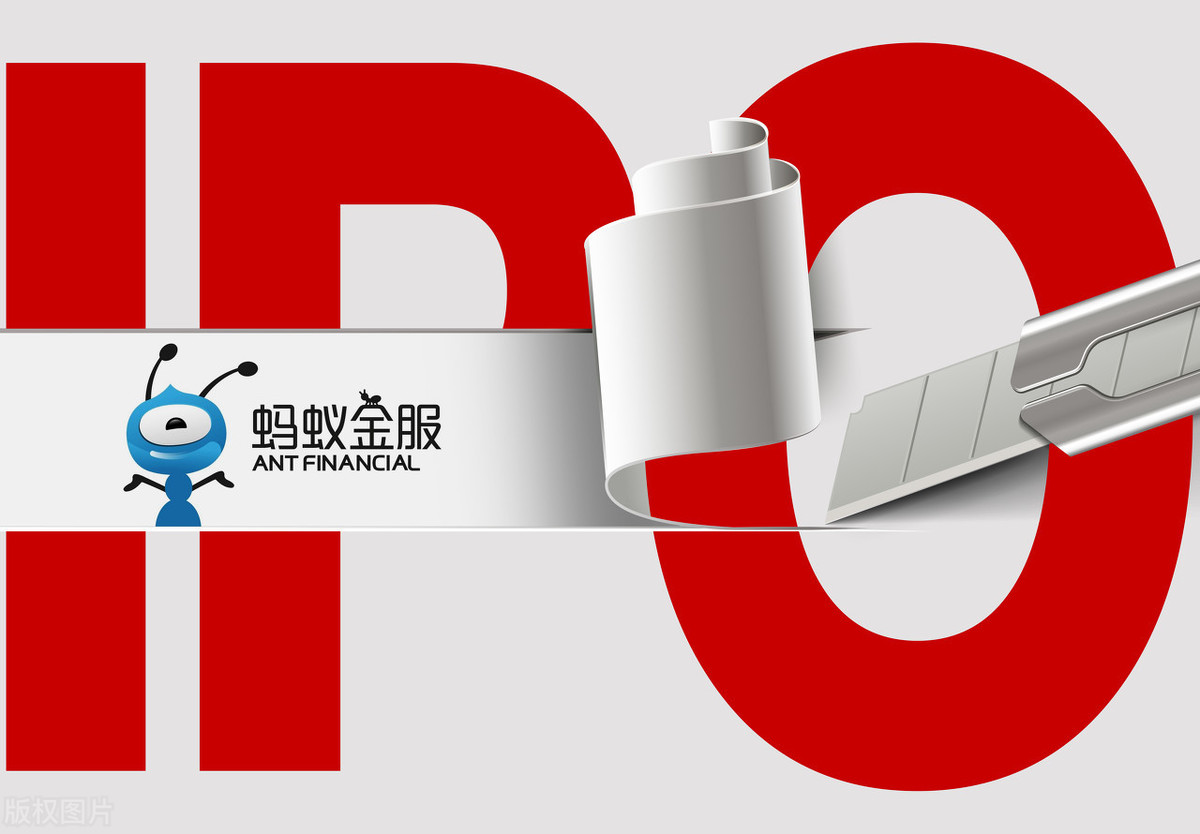Recently, many friends ate the sour lemons listed by Ant Financial, and felt that the blessings mentioned by Papa Ma still exist. Someone asked me, is it difficult to enter Ali?
Please, Xiaotian didn't go in either, how would I know?

However, in the spirit of digging into the roots, Xiaotian searched a lot of recruitment information for Alibaba Java development positions, and summarized the common and common technical requirements. It hasn't had time to make statistics, but the screenshot below is pretty good , Everyone will take a look first.
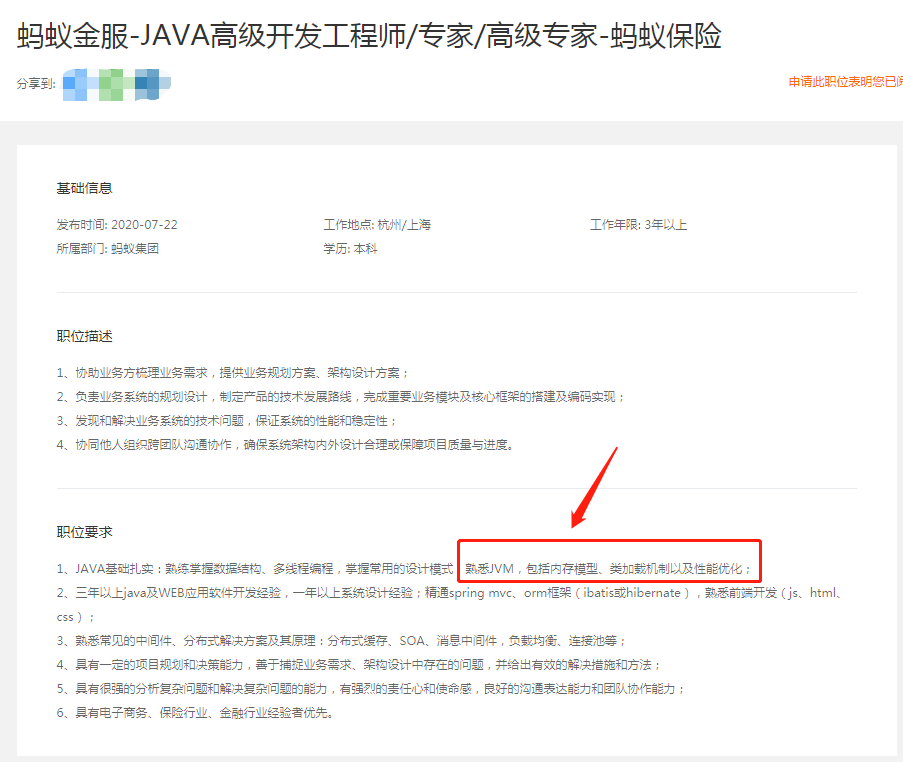
It seems that the picture is not very clear, there is no way, Xiaotian cut the picture several times, all of them are like this.
Let's wait for Xiaotian to count all the content and make clearer pictures for everyone to see! Here, Xiaotian will share a series of articles about Alibaba’s interview. One is to give some suggestions to fans and friends, but also to accumulate in this direction.
Well, not much nonsense, here is one of the very important technical points- JVM .

Deep understanding of JVM
Let's take a look at some of the core knowledge points that JVM needs to master.
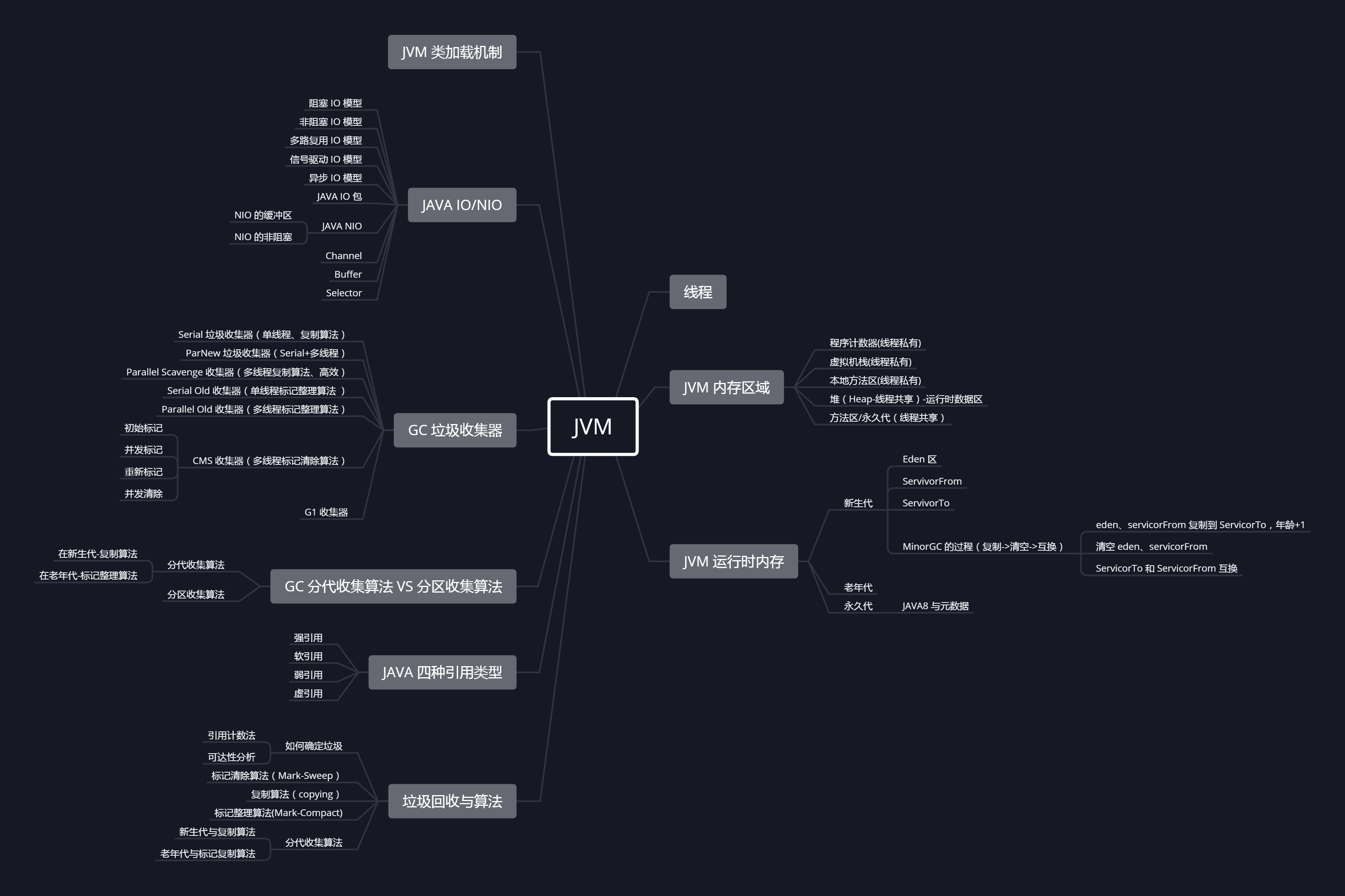
xmind diagram
1. Thread
2. JVM memory area
2.1. Program counter (thread private)
2.2. Virtual machine stack (thread private)
2.3. Local method area (thread private)
2.4. Heap (Heap-Thread Sharing)-Runtime Data Area
2.5. Method area/permanent generation (thread sharing)
3. JVM runtime memory
3.1. Cenozoic
- Eden Ward
- ServivorFrom
- ServivorTo
- MinorGC process (copy -> empty -> swap)
- eden, servantFrom copied to ServicorTo, age +1
- Clear eden, servantFrom
- ServicorTo and ServicorFrom interchange
3.2. Old age
3.3. Permanent Generation
- JAVA8 and metadata
4. Garbage collection and algorithms
4.1. How to determine garbage
- Reference counting
- Accessibility analysis
4.2. Mark-Sweep Algorithm (Mark-Sweep)
4.3. Copying algorithm (copying)
4.4. Mark-Compact
4.5. Generational collection algorithm
- Cenozoic and replication algorithms
- Old age and tag replication algorithm
5. JAVA four reference types
5.1. Strong references
5.2. Soft references
5.3. Weak references
5.4. Phantom references
6. GC generational collection algorithm VS partition collection algorithm
6.1. Generational collection algorithm
- In the new generation-replication algorithm
- In the old age-tag sorting algorithm
6.2. Partition collection algorithm
7. GC garbage collector
7.1. Serial garbage collector (single thread, copy algorithm)
7.2. ParNew Garbage Collector (Serial+Multithreaded)
7.3. Parallel Scavenge collector (multi-threaded replication algorithm, high efficiency)
7.4. Serial Old Collector (Single-Threaded Mark Sorting Algorithm)
7.5. Parallel Old Collector (Multi-threaded Mark Sorting Algorithm)
7.6. CMS collector (multi-threaded mark removal algorithm)
- Initial mark
- Concurrent mark
- Remark
- Concurrent cleanup
7.7. G1 Collector
8 、 JAVA IO / NIO
8.1. Blocking IO model
8.2. Non-blocking IO model
8.3. Multiplexed IO model
8.4. Signal-driven IO model
8.5. Asynchronous IO model
8.6. JAVA IO 包
8.7. JAVA NIO
- NIO buffer
- NIO's non-blocking
8.8. Channel
8.9. Buffer
8.10. Selector
9, JVM class loading mechanism
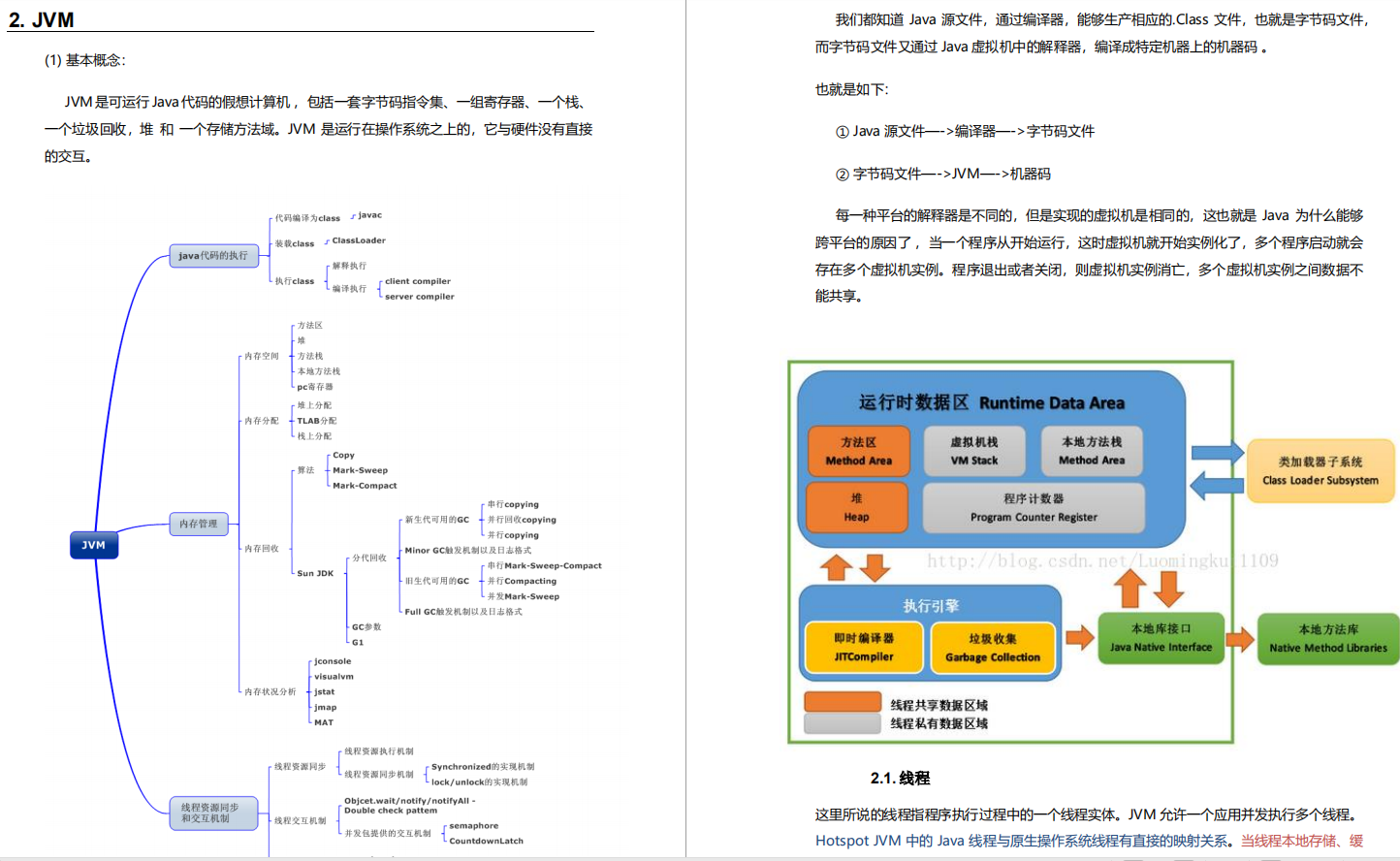
I have sorted out the specific content of the above core knowledge points, and friends who need it can receive it for free by private messaging "JVM" in the background!
2020 interview questions summary JVM articles (27 questions)
Real warning
- Under what circumstances will stack memory overflow occur?
- The memory structure of the JVM, the ratio of Eden and Survivor.
- Why is JVM memory divided into young generation, old generation and persistent generation. Why are there Eden and Survivor in the new generation?
- What is a complete GC process in JVM, how to promote the object to the old age, and how many main JVM parameters you know?
- Do you know which kinds of garbage collectors, their advantages and disadvantages, focus on cms and G1, including principles, processes, advantages and disadvantages.
- The realization principle of garbage collection algorithm.
- When a memory overflow occurs, how to troubleshoot?
- How much do you know about the JVM memory model, such as reordering, memory barriers, happen-before, main memory, working memory, etc.
- Talk about the reflection mechanism of JAVA.
- What are the JVM parameters of your online application?
- The difference between g1 and cms is the garbage collector selection of throughput priority and response priority.
- How to print thread stack information.
- Please explain the meaning of the following jvm parameters?
- How many ways are objects created in Java?
- Do objects in Java necessarily allocate memory on the heap?
- Which areas of the runtime data are shared by threads and which are exclusive?
- Are arrays stored on the heap or stack in Java?
- What is the process of Java object creation?
- How to get dump files of heap and stack?
- Trigger conditions for Minor GC and Full GC.
- What are the objects that can be used as GC Roots in the Java language?
- Class loading process.
- Scenario of Java memory leak.
- The memory model changes in the jdk1.8 virtual machine.
- Reasons for frequent GC.
- When high concurrency, JVM tuning.
- The difference between System.gc() and Runtime.gc().
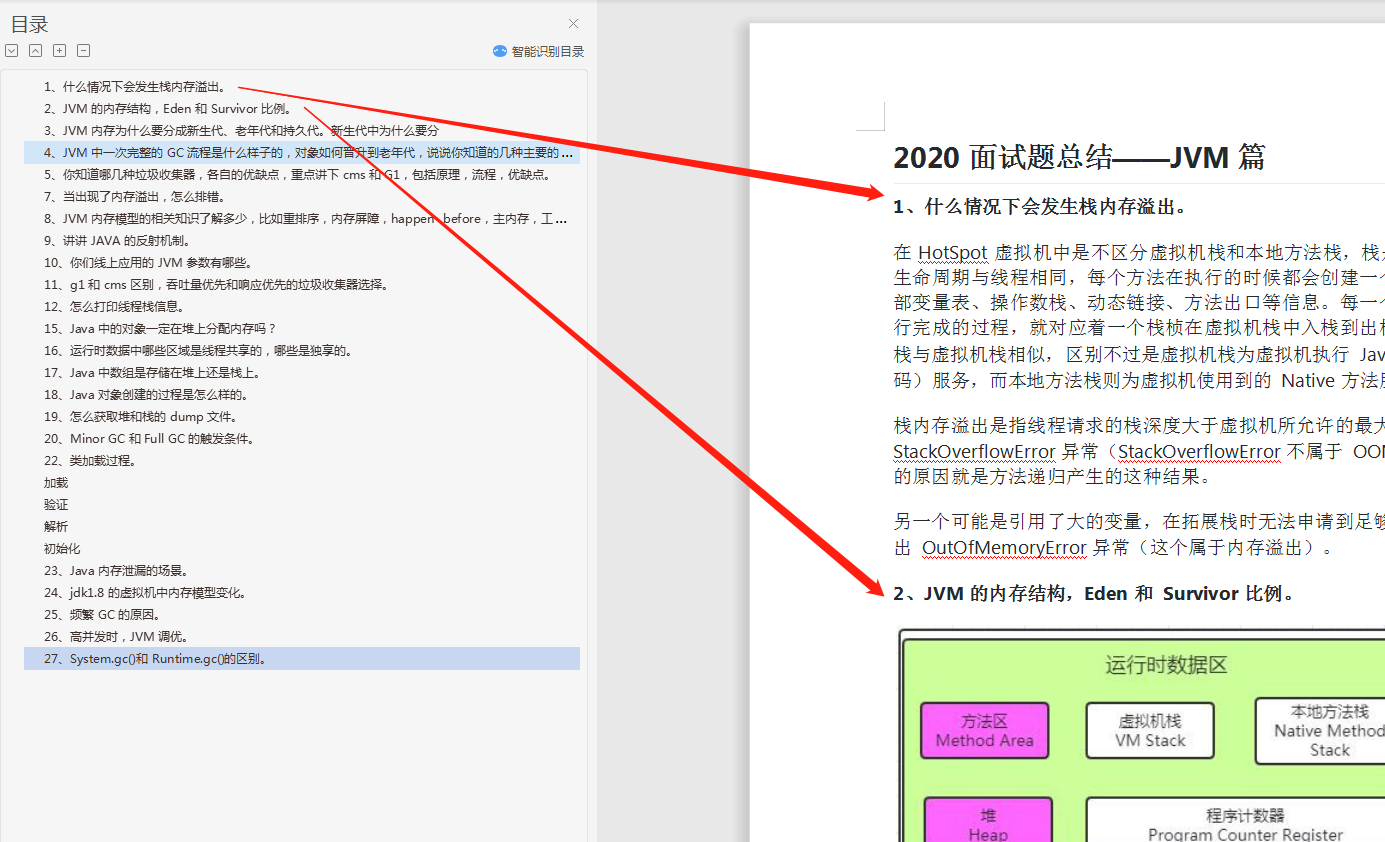
I have sorted out the answers to the interview questions, and friends who need it after three consecutive scans can receive them for free!

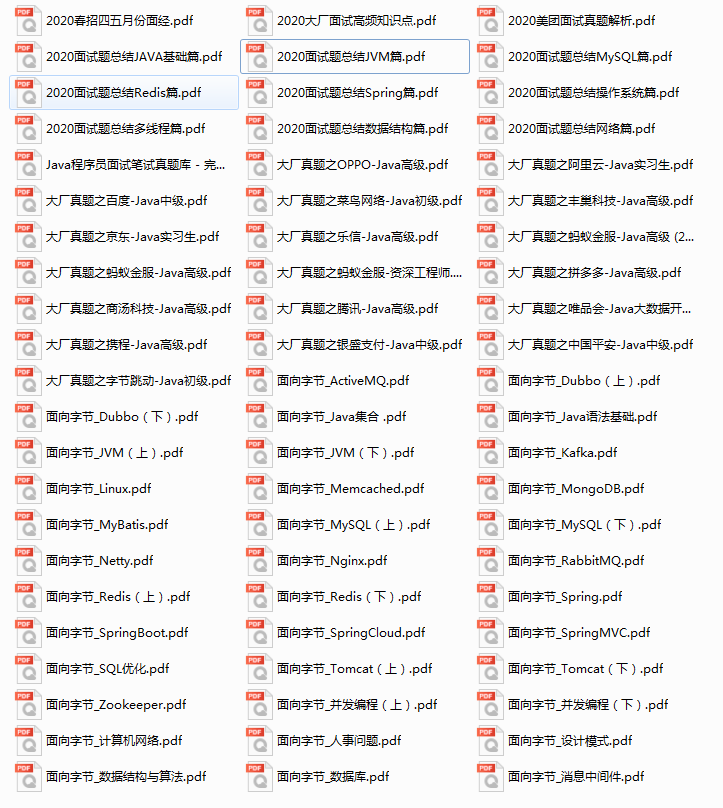
There are more information such as Mysql, Redis, Spring, multi-threading, data structure, etc. waiting for you to unlock!
